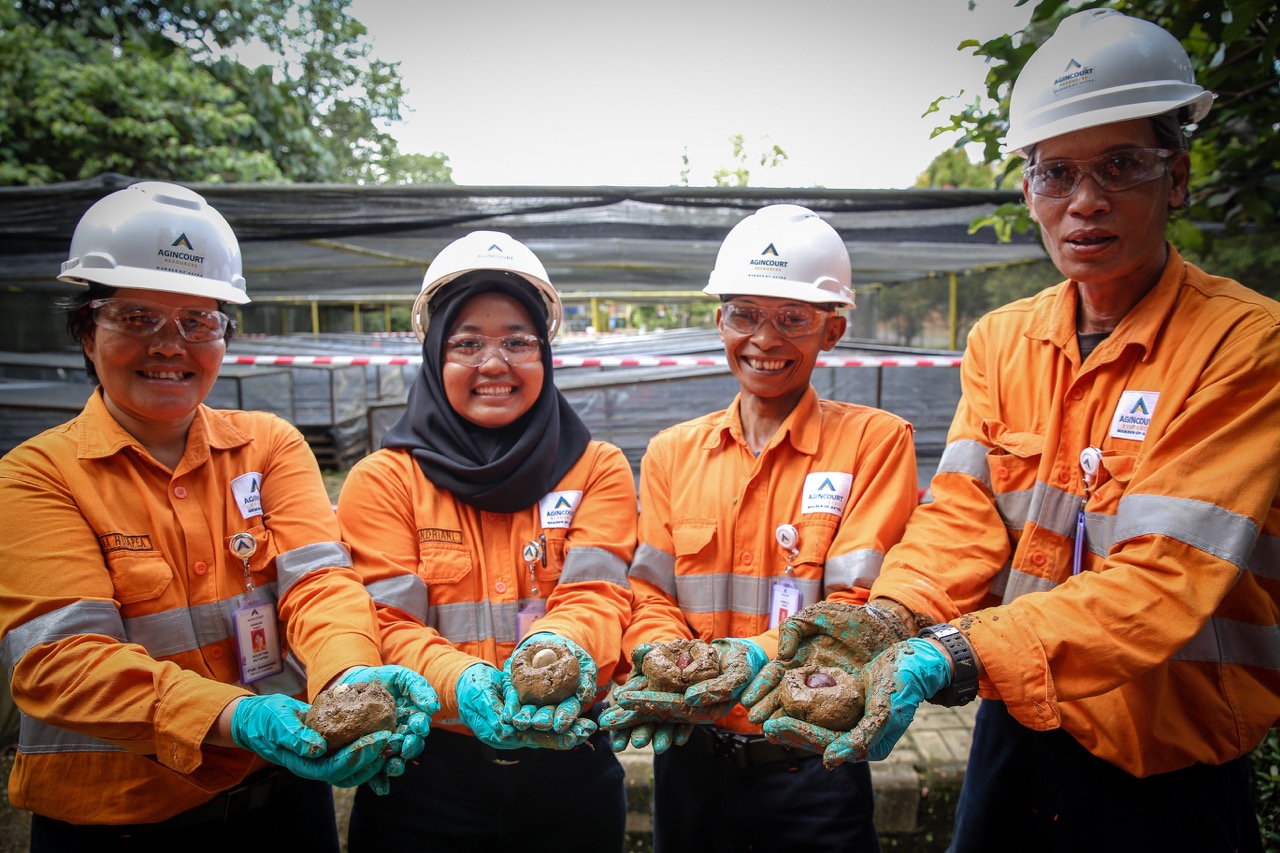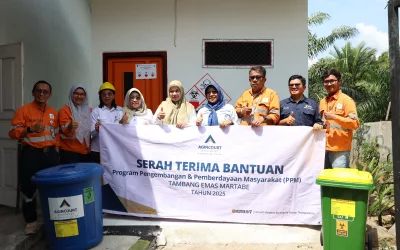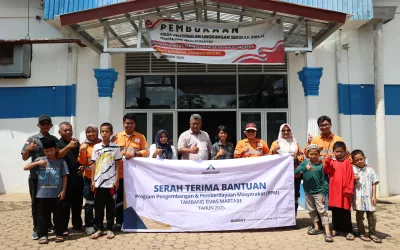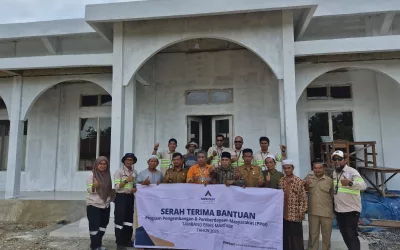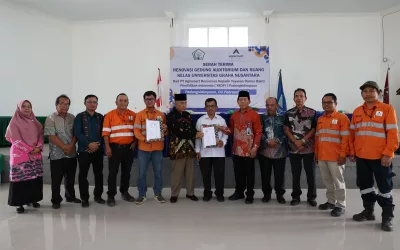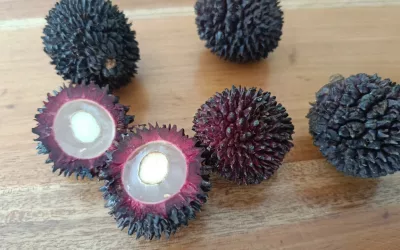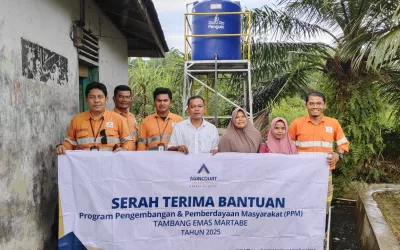Trees are important for maintaining biodiversity. Trees and woodland ecosystems in particular provide clean air, offer protection from flooding, and store carbon. It has a significant role in preventing catastrophic climate breakdown. PT Agincourt Resources (PTAR), recognizes the importance of preserving nature and maintaining biodiversity. As part of the Astra International group, PTAR responsible for managing the Martabe gold mine, follows the principles of good mining practice and believes that protecting natural resources and the environment is a shared responsibility.
To ensure the preservation of the environment, it’s important to incorporate conservation efforts into all development and mining activities. This can be done by aligning the interests of both sectors without any clashes. PTAR, in particular, makes sure that when clearing land for mining purposes, only the necessary area is cleared and the removal of trees is minimized. After mining, the company is responsible for reforesting the land and ensuring the safe evacuation of any protected animals that might have entered the area of operation.
Since 2012, PTAR has had an environmental department responsible for restoring land and distributing thousands of free tree seedlings of various types to the community. The company also conducts phytoremediation research and plants endemic species that grow in the Batang Toru area. The success of PTAR’s replanting efforts on ex-mining land is evident from the presence of various animal species in the new ecosystem formed by the tree seedlings. PTAR acknowledges that development, including mining, is aimed at human welfare but cannot exist without good water and a healthy environment. Therefore, the company believes that preserving nature and maintaining biodiversity is not only a responsibility but also an opportunity to provide prosperity for humans.
The Importance of Land Restoration
Mining activities often result in land clearing, reduced tree numbers, altered landscapes, and soil infertility. These issues are of great concern to PTAR, as the company takes responsibility for its impact on nature and society. In response, PTAR has established an enviro department to manage its mineland, with a focus on recovery, reclamation, restoration, and rehabilitation to restore the land to its former functionality. While the restoration of mined areas is a standard procedure, PTAR also recognizes its responsibility to protect nature beyond the mining area. To this end, the company has partnered with the local community to plant trees from endemic species that thrive in the Batang Toru area, to promote the restoration of the region’s natural ecosystems.
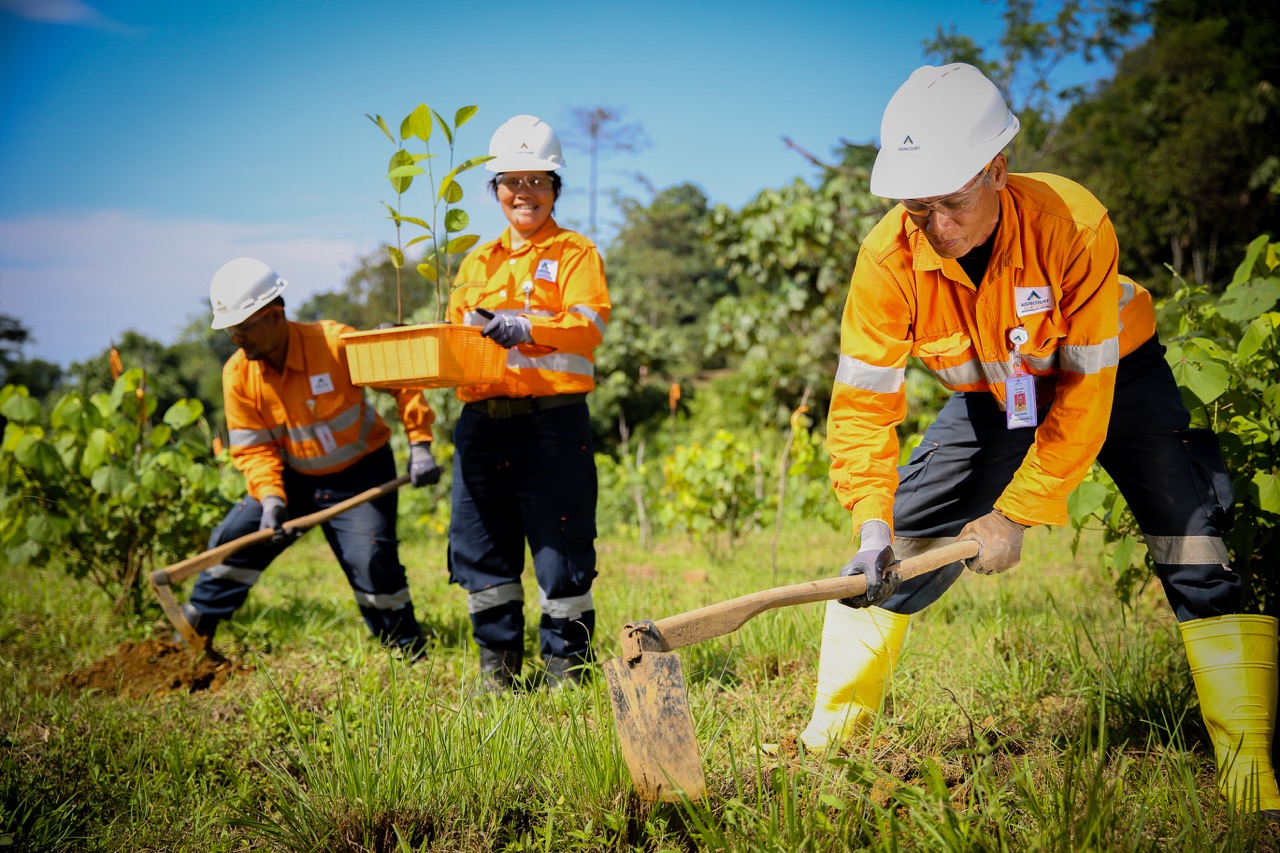
Read Also: Agincourt Resources and IPB Collaborate on Biodiversity Conservation Strategy
Thousands of tree seedlings from various local species have been distributed free of charge to the community for planting. Fitri Rahmadani, a staff member of the enviro department, explained that PTAR has been distributing tree seedlings to residents for free since 2012. “For the replanted mine areas, we planted fast-growing tree species like sengon and trembles to provide shade. We also planted pioneer trees that can bind nitrogen and improve soil fertility, as some plants do not grow well in open areas,” Fitri explained. PTAR also takes special care of rare species found during forest walks. The success of their replanting efforts can be seen in the diverse animal species thriving in the new ecosystem, including birds, frogs, pythons, forest goats, and turtles. To restore soil fertility, PTAR selects tree species like sengon, waru, red meranti, and durian that can fix nitrogen.
The Tapanuli area boasts unique local flora such as Styrax Paralleloneurum or Toba incense that provide habitats for various species. These trees help attract smaller animals, grasses, and shrubs, which in turn lure larger predators, creating new ecosystems. The Department of Environment closely monitors the development of new forest ecosystems on ex-mining land and annually plants thousands of tree seedlings to reforest former mining areas. They also breed rare flora species with great care, and personnel from the Enviro division collect and nurture rare plant seeds found in the Batang Toru forest to increase their population. PTAR is committed to environmental preservation and has produced over 14,000 local seeds in PTAR nursery facilities in 2022.
Read Also: Commemorating Indonesian Tree Planting Day, PTAR Engages People to Care for the Environment
PTAR’s Enviro division has planted over 7,900 local plant seeds in the original area for species enrichment and provided 1,200 seedlings to the Batang Toru and Muara Batangtoru communities. Additionally, they have continued to plant 1,000 tree seedlings on the banks of the Garoga River, Batang Toru District. PTAR’s support for environmental management outside their work area reflects their commitment to implementing sustainable environmental management practices beyond the internal operational environment of the Martabe Gold Mine. They actively participate in the rehabilitation program to promote sustainable environmental management practices outside the mining area.
Read Also: Planting Mangrove Seeds, PTAR Preserves the Central Tapanuli Coastal Area
In North Sumatra, PTAR is dedicated to preserving mangrove forests as part of their commitment to environmental sustainability. In February 2023, they participated in planting 30,000 mangrove seedlings in Aek Garut village, Pandan District, Central Tapanuli. Ruli Tanio, Deputy President Director of Agincourt Resources, explained that planting mangrove trees is one of the ways Agincourt is striving towards sustainable growth. He emphasized that a supportive environment is essential for a better life. In addition to planting mangrove seedlings, PTAR also supplied 20,000 shellfish seeds of the locust species.
Ruli stressed that taking small steps towards maintaining a sustainable earth is crucial for the long term. Once the Martabe gold mine is no longer active, Agincourt hopes to see the area transformed into a paradise full of biodiversity and the return of ecosystem functions. Ruli emphasized that their commitment is to implement programs that have a positive impact on society. He hopes that their efforts will receive a positive response from stakeholders, leading to collaboration and a better Indonesia.
Read Also: Disaster Mitigation Due to Global Warming by Building Mangrove Ecosystems
Katarina Siburian Hardono, Senior Manager of PTAR Corporate Communications, reported that they submitted a mine closure document in 2019 worth $28.3 million. This ensured that all mine operational areas had proper mine closure plans in place. In the same year, the company stabilized 35.5 hectares of the area with cover crops and planted 2,886 seedlings. Moreover, PTAR prepared 5,828 seedlings from 45 different species of plants in the nursery. These initiatives demonstrate PTAR’s commitment not only to the mining area but also to preserving the natural environment and ecosystems beyond it. PTAR works in collaboration with various parties to manage and conserve the environment in the Batang Toru area. It is the responsibility of everyone to safeguard the environment for generations to come.

